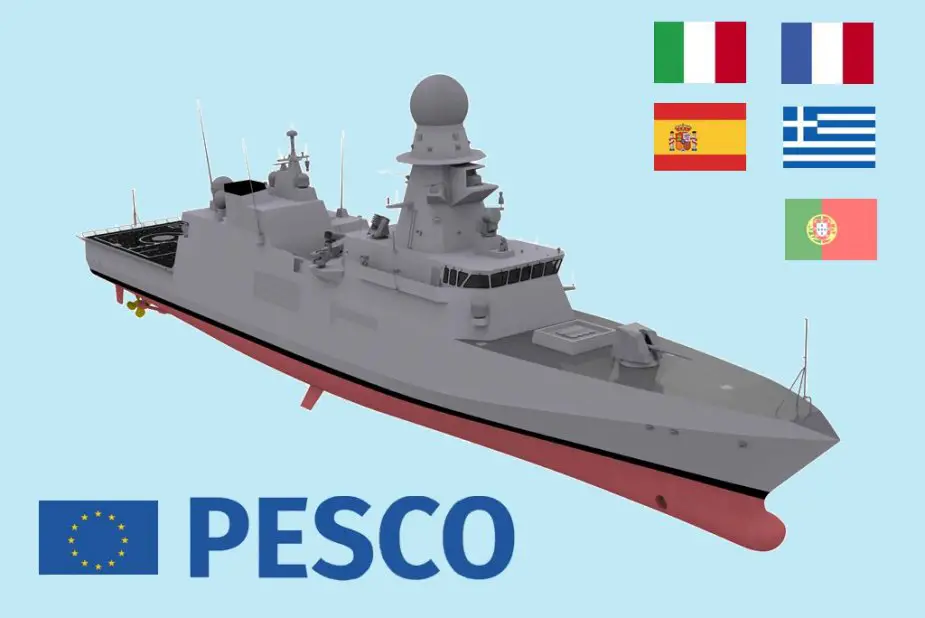Breaking news
Fincantieri, Naval Group and Navantia make one joint offer for the European corvette.
According to a press release published by Navantia on December 13, 2021, a consortium led by Fincantieri, Naval Group, and Navantia and coordinated by Naviris submitted on December 9th an industrial proposal related to the MMPC call of the European Defence Fund (EDF).
Follow Navy Recognition on Google News at this link
 Artist rendering of European Patrol Corvette (Picture source: European Union)
Artist rendering of European Patrol Corvette (Picture source: European Union)
Over the last years, and more specifically during 2021, there have been growing calls for Europeans to take responsibility for their own security both within NATO and as part of the European common security and defense policy.
In this respect, Fincantieri, Naval Group, and Navantia acknowledge that there is a need for collaboration in the European Union naval defense sector to support Europe in dealing with these challenges and the ones to come.
As major European industrial players in the naval defense sector, they believe that this is the right time to start a real, concrete, added-value collaboration around a common program that will be the first common naval capability in Europe. This strategic program already exists the European Patrol Corvette (EPC), the most important naval initiative within the Permanent Structured Cooperation (PESCO).
On December 9th, the consortium led by the three industrial naval partners and coordinated by Naviris submitted the industrial proposal related to the MMPC call of the European Defence Fund (EDF) in order to develop this joint project.
The clear objective of the proposal is to maximize synergies and collaboration among European shipbuilding industrials. By developing together a new ship, the EPC, they aim to ensure European sovereignty in the second rank warship.
This has been made possible thanks to the participation of:
4 countries in the EPC PESCO project (Italy, France, Spain, and Greece)
6 countries involved in the co-founding (Italy, France, Spain, Greece, Denmark, and Norway)
3 European Shipbuilding Industrials (Fincantieri, Naval Group, and Navantia) with Naviris in charge of the coordination
40 companies for maritime systems and equipment
The Permanent Structured Cooperation (PESCO) is part of the European Union's (EU) security and defense policy (CSDP) in which 25 of the 27 national armed forces pursue structural integration. Based on Article 42.6 and Protocol 10 of the Treaty on European Union, introduced by the Treaty of Lisbon in 2009, PESCO was first initiated in 2017. The initial integration within the PESCO format is a number of projects which launched in 2018.





























